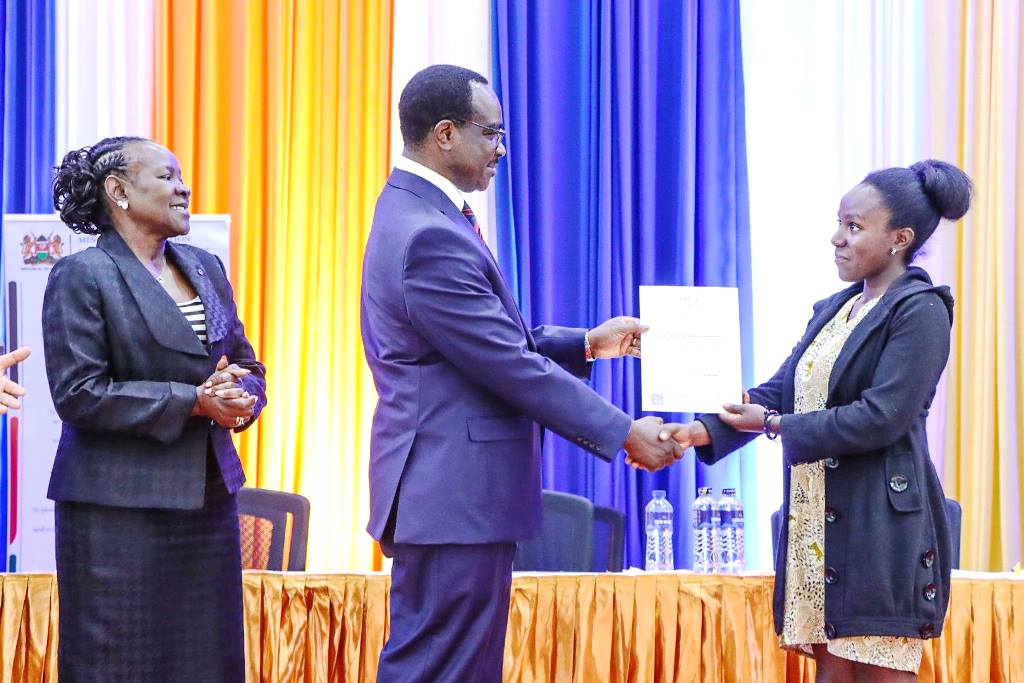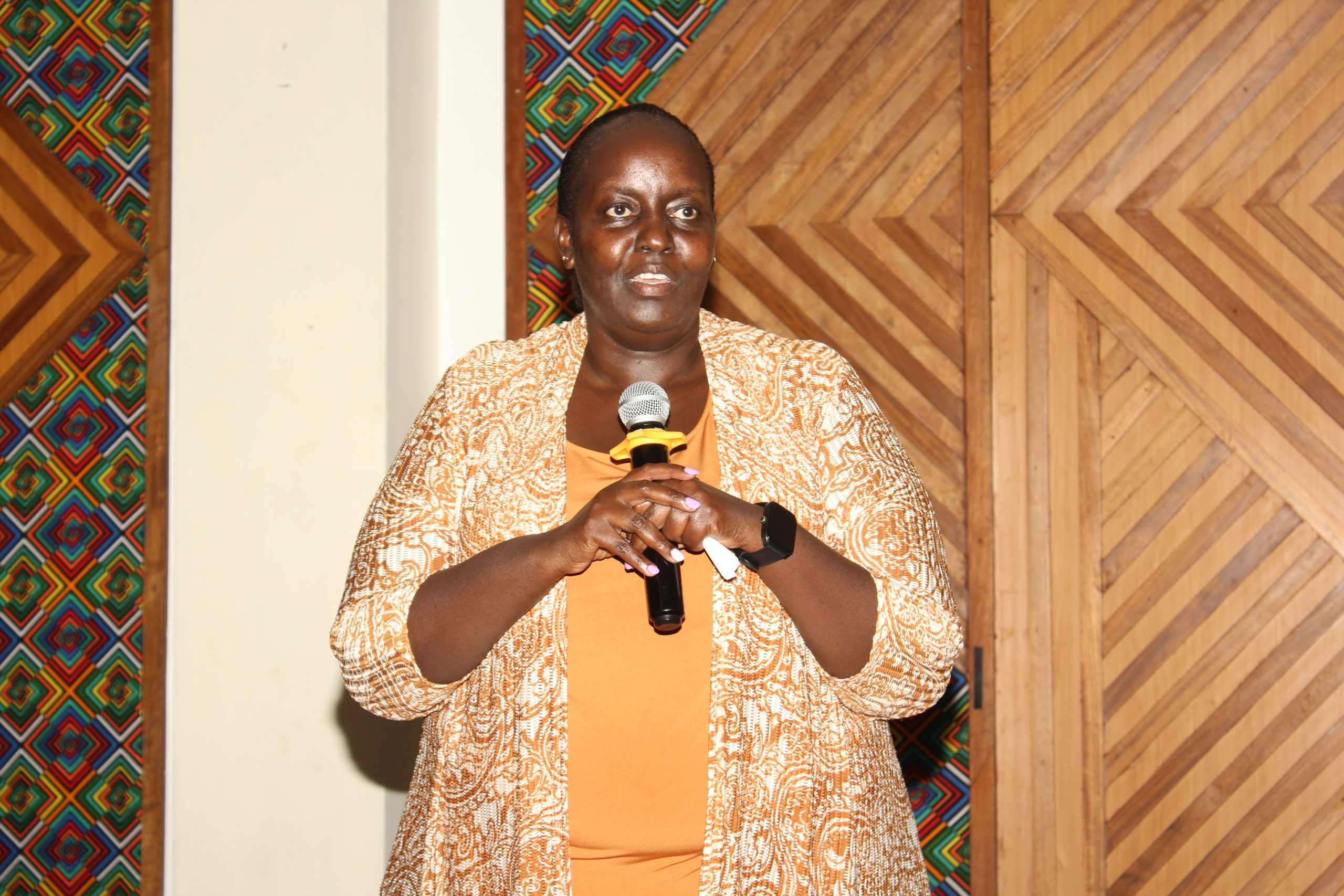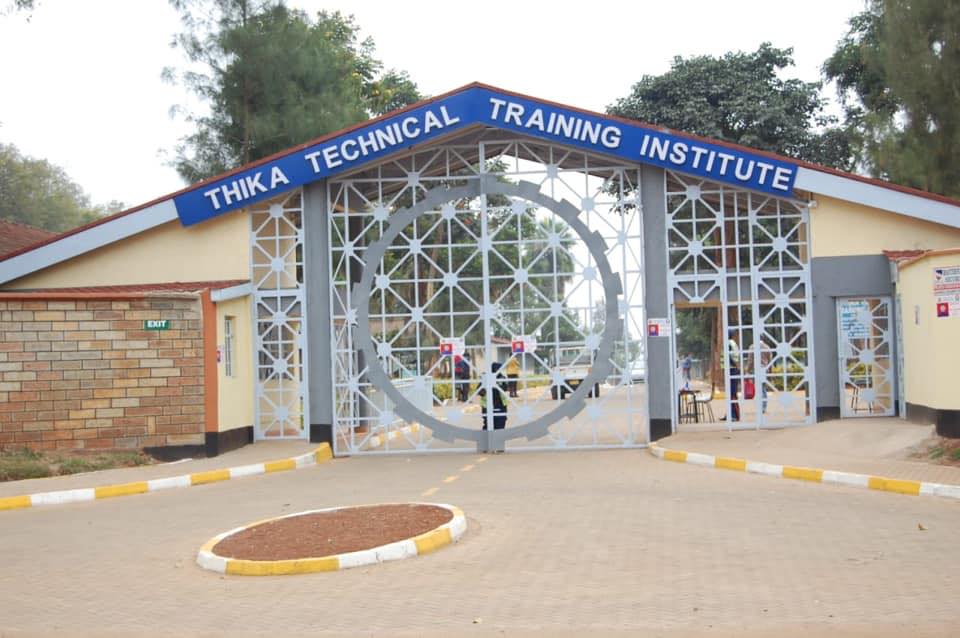The Ministry of Education has released the results of the July/August 2024 Competency-Based Education and Training (CBET) assessment.
Speaking during the release of the results at the Kenya School of TVET, Education Cabinet Secretary (CS) Julius Ogamba said the assessment, which ran from July 8 to August 9, was diligently carried out across 252 TVET assessment centers.
At level three, 211 candidates were assessed in various courses, with 118 (56%) being male, and 93 (44%) being female. The National Skills Certificate comprised 18 qualifications.
At level four, 6,352 candidates were assessed with 3,468 (55%) being male, and 2,884 (45%) being female. The Artisan Certificate comprised 42 qualifications with 472 units of competency.
At level five, 22,842 candidates were assessed with 10,644 (47%) being male, and 12,192 (53%) being female. The Craft Certificate comprised 70 qualifications with 899 units of competency.
At level six, 30,170 candidates were assessed with 15,871 (53%) being male, and 14,294 (47%) being female. The Diploma certificate comprised 96 qualifications with 1,401 units of competency.
“Overall, 59,575 candidates were assessed in 226 qualifications across all levels with 2,929 units of competency. This figure represents a remarkable 196% increase from the November/December 2023 Assessment,” the CS said.
Ogamba said the Government had committed to making TVET one of the pillars of Kenya’s Vision 2030 and the Bottom-Up Economic Transformation Agenda (BETA). In this respect, it has implemented several key initiatives designed to strengthen the TVET sector, widen access to training, and improve the quality of programmes.
Since the decision to fully implement CBET, the government has taken concrete actions to embed this approach in every level of technical training. The Government, through TVET CDACC, has spearheaded the development of over 400 competency-based curricula, all developed in close consultation with industry experts to ensure that every skill taught is directly applicable to real-world job roles.
“A key part of CBET’s success has been the Recognition of Prior Learning (RPL) programme. This initiative has enabled many skilled Kenyans, particularly those whose skills were acquired outside formal education, to receive certification that reflects their competencies,” he said.
YOU MAY ALSO READ:
Homabay county commissioner reports smooth start to KPSEA exams, calls for community support
He added; ”RPL is about inclusivity and opportunity – it provides a pathway for workers to access formal employment, professional advancement, or further training. Through RPL, the TVET system is providing recognition to all talents and contributions. I encourage all institutions to register as RPL assessment centres with the TVET Authority.”
Ogamba noted that the State has invested heavily in the training of TVET trainers and assessors through partnerships with international organizations and conducting extensive capacity-building programmes that ensure trainers understand and apply CBET methodology.
“One of our foremost commitments has been to increase budget allocations to TVET. Quality education requires resources, and we have prioritized funding for TVET to support infrastructure development, provide modern equipment, and enable the training of our educators,” he said.
By Obegi Malack | obegimalack@gmail.com
You can also follow our social media pages on Twitter: Education News KE and Facebook: Education News Newspaper for timely updates.
>>> Click here to stay up-to-date with trending regional stories
>>> Click here to read more informed opinions on the country’s education landscape






